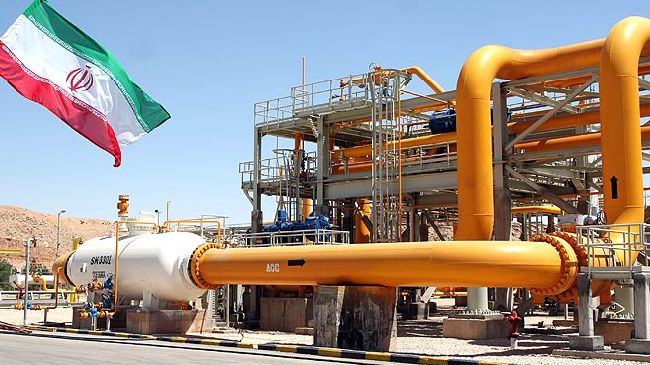
Irina_news
OPEC Deal Gets More Improbable by the Day
An oil output freeze agreement by OPEC and non-OPEC producers is looking increasingly improbable after a two-day meeting in Vienna among the parties concerned.

The meeting yielded nothing but commitments to continue discussions, raising serious doubts as to the productivity of all the talk.
Brazil, for example, a major non-OPEC oil producer, said it was still unwilling to cut its output after the
Iran and Saudi Arabia Fail to Agree on Output
Iran has rejected Saudi Arabia’s offer to freeze its daily crude oil production in order to help rebalance the markets.

The news did not come unexpectedly and hence didn’t affect oil prices but it certainly dampened hopes about a quick return to balance between supply and demand for crude.
Oil Jumps on Start of OPEC Meeting
Crude oil rallied yesterday in anticipation of OPEC’s meeting in Algiers, which starts today and tomorrow will see talks with Russia regarding an output freeze.

Prices were boosted by the growing number of OPEC members confirming their support for a freeze, including Nigeria and the UAE. Iran, however, is guarded in this respect. The country’s oil minister Bijan Zanganeh said on his arrival in
The Higher Oil Price, The More Chance Iran Will Cut Output
It stands to reason: the more expensive a commodity is, the more generous a producing country is with reducing its output, especially if the ultimate aim is a balanced market.

So it is today with Iran. Crude oil has been having a good few weeks and Iran, which in March completely refused to even discuss a potential production freeze, is now more willing to take part in a concerted market
No Freeze, Oil Drops
The 20 oil producing countries that took part in the Doha meeting failed to reach an agreement on an output freeze, sending oil prices down.

Brent crude dropped almost 4% to $41.38 a barrel at 10.10 am Hong Kong time, CNBC reported, while WTI was trading at $38.52, down 4.56%. Since this outcome was expected, its effect on prices was mostly expected. As for the reason, this was not a surprise,
Production Freeze Plan Falls Through Before Official Meeting
Saudi Arabia’s deputy crown prince said in an interview with Bloomberg that the country will only join an oil production freeze if Iran joins it too, effectively pulling out of the talks before they have even begun.

Iran has already refused to take part in any talks about a production freeze, with the country’s oil minister saying it will consider it once it boosts its current production to
Doubts About Production Freeze Weigh on Oil
A report raising doubts the much-awaited meeting of several oil producers in Russia may not take place there has sparked worries about the finality of the freeze, weighing on the commodity’s price.

The decline was temporary, pushing Brent crude down to $40.05 a barrel at close yesterday, down 2.5%. At 12:48 AM EST, however, the international benchmark had rebounded to $40.84. WTI settled at $37.
Iran Rules Out Freeze, Oil Slumps
Iran’s energy minister Bijan Namdar Zanganeh has been quoted by Bloomberg as saying there was no way for the country to freeze its oil output at current levels, which sent oil tumbling once again.

Zanganeh was referring to the agreement, reached by Russia and Saudi Arabia last week, to freeze their out production at current level and suggested other producers may do the same. The minister said
Production Freeze Agreed, Oil Jumps
The two top oil producers in the world, Russia and Saudi Arabia agreed to freeze their daily output at current levels.

Although these levels are record-high, the news is still good in that the agreement means the two countries will stop increasing output, at least for a while. Both are currently pumping over 10 million barrels a day. At their meeting in Qatar, the energy ministers of the two